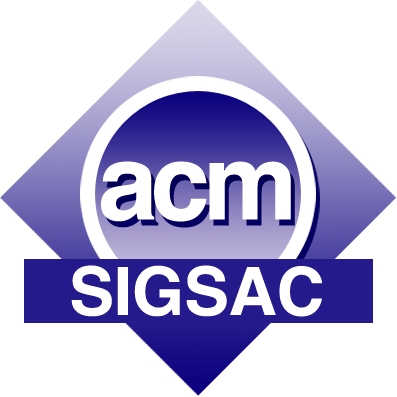|
CCSW 2009: The ACM Cloud Computing Security Workshop
in conjunction with the 16th ACM Conference on Computer and Communications Security (CCS) 13 November 2009, Hyatt Regency Chicago, Chicago, IL |

|
|


|
|
|
CCSW 2009: The ACM Cloud Computing Security Workshop
in conjunction with the 16th ACM Conference on Computer and Communications Security (CCS) 13 November 2009, Hyatt Regency Chicago, Chicago, IL |

|
|


|
|
|
Check out CCSW 2010.
Notwithstanding the latest buzzword (grid, cloud, utility computing, SaaS, etc.), large-scale computing and cloud-like infrastructures are here to stay. How exactly they will look like tomorrow is still for the markets to decide, yet one thing is certain: clouds bring with them new untested deployment and associated adversarial models and vulnerabilities. It is essential that our community becomes involved at this early stage. The CCSW workshop aims to bring together researchers and practitioners in all security aspects of cloud-centric and outsourced computing, including:
Location News The workshop takes place in the Toronto room. Student Stipends Student stipends are available to attend CCSW. Please apply on the CCS website and mention CCSW as your target workshop. We plan on awarding 2-7 student travel grants (a function also of the quality of the applications). Speakers 
Whitfield Diffie Visiting Professor Royal Holloway College University of London Whitfield Diffie is currently a Visiting Professor at the Royal Holloway College, University of London. Best known for his 1975 discovery of the concept of public key cryptography, Whitfield Diffie spent the 1990s working primarily on the public policy aspects of cryptography and has testified several times in the Senate and House of Representatives. His position - in opposition to limitations on the business and personal use of cryptography - is the subject of the book, _Crypto_, by Steven Levy of Newsweek. Diffie and Susan Landau are joint authors of the book Privacy on the Line, which examines the politics of wiretapping and encryption and won the Donald McGannon Award for Social and Ethical Relevance in Communications Policy Research and the IEEE-USA award for Distinguished Literary Contributions Furthering Public Understanding of the Profession. Diffie has also been a Sun Microsystems Vice President and Fellow, as well as its Chief Security Officer. As a CSO, Diffie was the chief exponent of Sun's security vision and responsible for developing Sun's strategy to achieve that vision. Diffie is a fellow of the Marconi Foundation and is the recipient of awards from a number of organizations, including IEEE, The Electronic Frontiers Foundation, NIST, NSA, the Franklin Institute and ACM. Diffie received a Bachelor of Science degree in mathematics from the Massachusetts Institute of Technology in 1965, and was awarded a Doctorate in Technical Sciences (Honoris Causa) by the Swiss Federal Institute of Technology in 1992. 
Ian Foster Associate Division Director, MCS Director, CI Argonne National Laboratory Ian Foster is considered one of the founders of the international Grid community and has written many influential documents on Grid architecture and principles. He created the Distributed Systems Lab at Argonne and University of Chicago, which has pioneered key Grid concepts, developed Globus software, the most widely deployed Grid software, and led the development of successful Grid applications across the sciences. An internationally recognized and widely cited researcher, Foster is a fellow of the American Association for the Advancement of Science and the British Computer Society. With Dr. Carl Kesselman, he co-edited The Grid 2: Blueprint for a New Computing Infrastructure, now in its second edition (Morgan Kaufmann, 2003). Foster graduated with a B.S. in computer science from the University of Canterbury, New Zealand and a Ph.D. in computer science from Imperial College, United Kingdom. 
Peter Mell Project Lead, Cloud Computing Security 
National Institute of Standards and Technology (NIST) Computer Security Division Peter Mell is a senior computer scientist in the Computer Security Division at the National Institute of Standards and Technology (NIST). He is the cloud computing and security project lead at NIST and is the lead author on NIST's upcoming cloud guidance publication. He is also the creator of the National Vulnerability Database and the Security Content Automation Protocol (SCAP) validation program. These programs are widely adopted within the U.S. government and industry and used for standardizing and automating vulnerability and configuration management, measurement, and policy compliance checking. His research experience includes the areas of cloud computing, security metrics, security automation, vulnerability databases, and intrusion detection systems (IDSs). Program (preliminary)
Registration Please register here on the main CCS website. Organizers STEERING Radu Sion, Stony Brook (chair) Gene Tsudik, UC Irvine Moti Yung, Google Inc. CHAIRS Radu Sion, Stony Brook (PC chair) Dawn Song, UC Berkeley (PC co-chair) COMMITTEE Bogdan Carbunar, Motorola Labs George Danezis, Microsoft Research Roger Dingledine, The Tor Project Tal Garfinkel, VMware Inc. Philippe Golle, Palo Alto Research Center Seny Kamara, Microsoft Research Angelos Keromytis, Columbia University Susan Landau, Sun Microsystems Inc. Wenke Lee, Georgia Tech Cristina Nita-Rotaru, Purdue University Patrick McDaniel, Penn State University Dimitris Papadias, Hong Kong University of Science and Technology Adrian Perrig, Carnegie Mellon University Pierangela Samarati, University of Milano Reiner Sailer, IBM Research Gene Tsudik, UC Irvine Nicholas Weaver, ICSI Peter Williams, Stony Brook Giovanni Vigna, UCSB Moti Yung, Google Inc. Sponsorship Interested in sponsoring CCSW (this or next year)? Please contact us directly. Gold Sponsors  
|